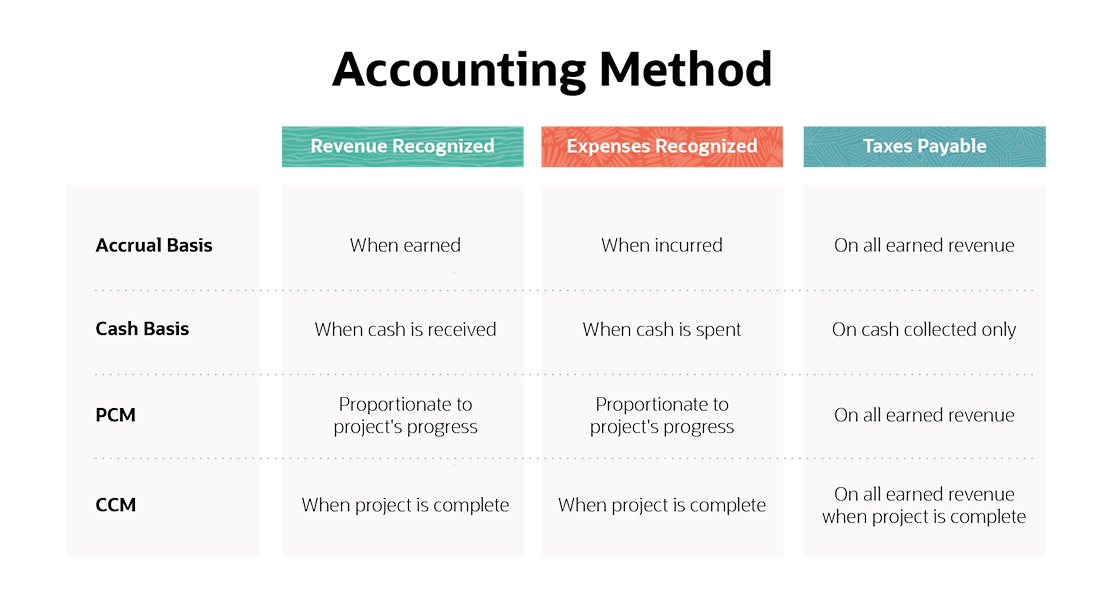Why Construction Accounting is Essential for Efficient Project Management
Why Construction Accounting is Essential for Efficient Project Management
Blog Article
Comprehending the Importance of Construction Audit for Effective Job Monitoring

Duty of Construction Bookkeeping
Building audit serves as the backbone of monetary monitoring in the building and construction industry, guaranteeing that jobs are finished within spending plan and economic objectives are met. construction accounting. This specialized bookkeeping technique addresses the one-of-a-kind challenges faced in construction projects, including varying project durations, varying expenses, and several stakeholders
One of the key roles of construction bookkeeping is to supply precise expense estimate and tracking throughout the job lifecycle. This promotes enlightened decision-making, making it possible for task supervisors to change resources and timelines effectively. Additionally, construction accounting enhances cash money circulation administration by checking accounts receivable and payable, therefore making certain that funds are offered for prompt settlements to subcontractors and distributors.
It outfits job managers with the necessary monetary information to prepare detailed monetary statements, which are crucial for audits and monetary testimonials. Ultimately, the duty of construction accountancy expands past plain financial tracking; it is important to critical preparation and functional performance, driving the success of building and construction projects in a competitive landscape.
Trick Parts of Building Accountancy

Budgeting establishes a financial structure that overviews job execution, permitting managers to designate sources effectively and expect possible monetary challenges. Accurate cost monitoring is necessary for tracking expenses in real-time, aiding to determine differences in between projected and actual prices. This makes it possible for prompt modifications to keep the task on spending plan.
Furthermore, economic reporting gives stakeholders with a clear picture of the task's financial wellness. Regular reports, such as revenue and loss declarations and capital evaluations, facilitate informed decision-making and improve openness amongst all events included.
Furthermore, compliance with sector regulations and accounting standards is crucial. This makes certain that economic techniques are not just efficient yet likewise authorized, securing the organization versus legal repercussions. By integrating these key parts, construction accounting promotes an organized strategy to handling economic resources, inevitably adding to the successful completion of construction tasks.
Benefits for Job Managers
Leveraging reliable building accountancy practices provides task managers with a plethora of advantages that improve both functional effectiveness and financial oversight. One considerable benefit is improved budget plan monitoring. Accurate monitoring of revenues and expenses allows job supervisors to monitor financial efficiency in real time, guaranteeing jobs remain within budget and helping with timely adjustments when required.
In addition, building audit improves cash circulation monitoring, making it possible for task managers to enhance and anticipate economic needs source allowance. By understanding cash money inflows and outflows, they can much better handle payments to subcontractors, employees, and vendors, consequently avoiding expensive hold-ups.
Additionally, durable accounting systems supply comprehensive coverage capacities. Project supervisors can generate reports that use insights into job profitability, expense differences, and resource application. This data-driven method promotes educated decision-making, allowing managers to determine possible issues proactively and execute rehabilitative measures.
Lastly, adherence to building audit standards guarantees compliance with governing and legal requirements, reducing the danger of fines or disagreements. In general, efficient building accountancy outfits task supervisors with the devices necessary to drive project success, enhance stakeholder confidence, and promote long-term organizational development.
Usual Obstacles in Construction Accounting
Many project supervisors encounter substantial obstacles in building here and construction audit that can impede job success. One of the main challenges is the complexity of tracking multiple work websites, each with unique budget plans, timelines, and resource allocations. This requires thorough focus to detail, which can be frustrating without a durable accountancy system in position.
Additionally, fluctuating product prices and labor rates can complicate budget plan administration, making precise forecasting hard. Job managers frequently battle to resolve these expenses with actual expenses, resulting in potential economic inconsistencies.
Moreover, building and construction accountancy involves conformity with different regulations, consisting of tax commitments and labor legislations. Navigating these regulations can be complicated, particularly for supervisors who might not have why not check here a strong accountancy background.
An additional significant obstacle is managing cash money flow, which is essential in the building sector. Delays in invoicing, repayments from customers, or unforeseen task changes can develop capital scarcities, jeopardizing the job's progress.
Lastly, efficient interaction between job supervisors, accountants, and field groups is vital. Misunderstandings can cause incorrect monetary coverage, further complicating job monitoring efforts. Attending to these obstacles proactively is important for successful building and construction bookkeeping.

Finest Practices for Effective Bookkeeping
While navigating the complexities of construction bookkeeping can be difficult, embracing finest practices can considerably enhance financial management and task success. One basic technique is preserving precise and timely documents. Executing robust audit software program customized to building projects can simplify information entry, invoicing, and reporting, conserving and minimizing errors time.
In addition, developing a clear budget and normal tracking against this spending plan are vital. Utilizing a system of periodic financial reviews permits project supervisors to determine variances early, promoting timely decision-making. It is additionally necessary to different project expenses into straight and indirect groups, enabling more clear insights right into profitability.
An additional best method involves promoting open communication among all stakeholders. Normal updates and collective conversations about monetary status can guarantee every person is aligned and informed. Educating team in construction-specific bookkeeping concepts further boosts competency and precision.
Last but not least, making certain compliance with relevant accountancy criteria and regulations is non-negotiable. Regular audits and inner evaluations add to transparency and liability, developing count on with stakeholders and clients. By focusing on these best techniques, construction companies can maximize their bookkeeping procedures, ultimately driving project success and financial stability.
Conclusion
In conclusion, building and construction bookkeeping plays a pivotal duty in ensuring successful project administration by helping with accurate monetary oversight and enhancing decision-making. By integrating essential parts such as price estimate, money flow management, and More about the author compliance, project managers can navigate usual difficulties and leverage finest methods for reliable audit. Eventually, a durable building audit structure not only safeguards budget integrity but likewise adds to the overall economic wellness of building projects, promoting lasting success within the industry.
By integrating these crucial parts, building and construction audit fosters an organized approach to handling monetary resources, eventually contributing to the effective completion of building jobs.
Precise monitoring of incomes and costs permits job supervisors to keep an eye on financial efficiency in real time, making certain projects remain within budget plan and helping with prompt changes when needed.
Task managers can generate reports that supply understandings right into job success, cost differences, and resource usage.Many task supervisors experience substantial obstacles in building bookkeeping that can impede project success. construction accounting. Eventually, a robust building audit framework not just safeguards budget stability but likewise adds to the general economic health of building tasks, fostering sustainable success within the sector
Report this page